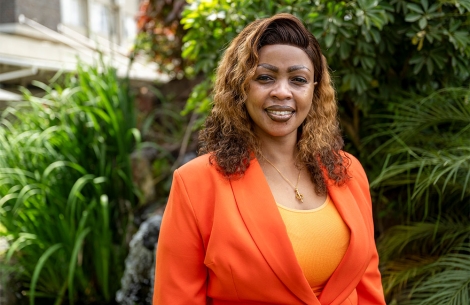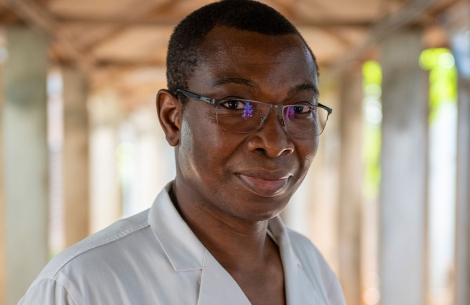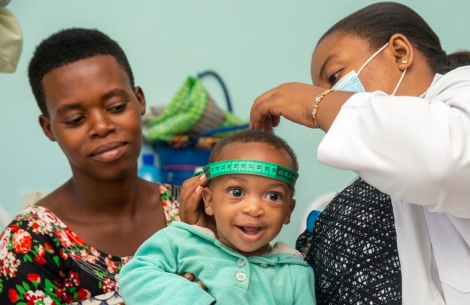Smile Train Helps Spread Cleft Speech Therapy Across West Africa
How a speech therapist from Benin is helping Smile Train patients find their voice
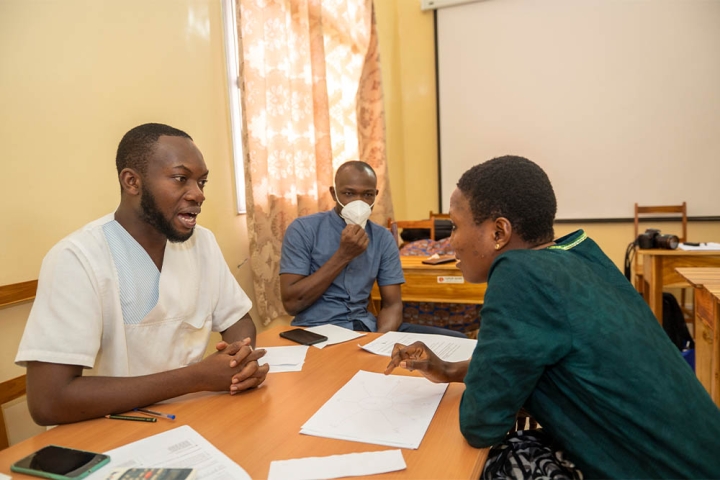
Many think that cleft treatment ends once the last surgical suture is sewn. But in fact, cleft care stretches far beyond the operating table. Since many children with clefts learn to speak with an open palate, for example, they often struggle to be understood when they speak, even after surgery. Specialised speech therapy is essential for these children, but in much of the world, cleft-trained speech practitioners are few and far between. Edouardo Adjassin is spreading this vital practice through West Africa, helping children who thought they would never be understood find their voice.
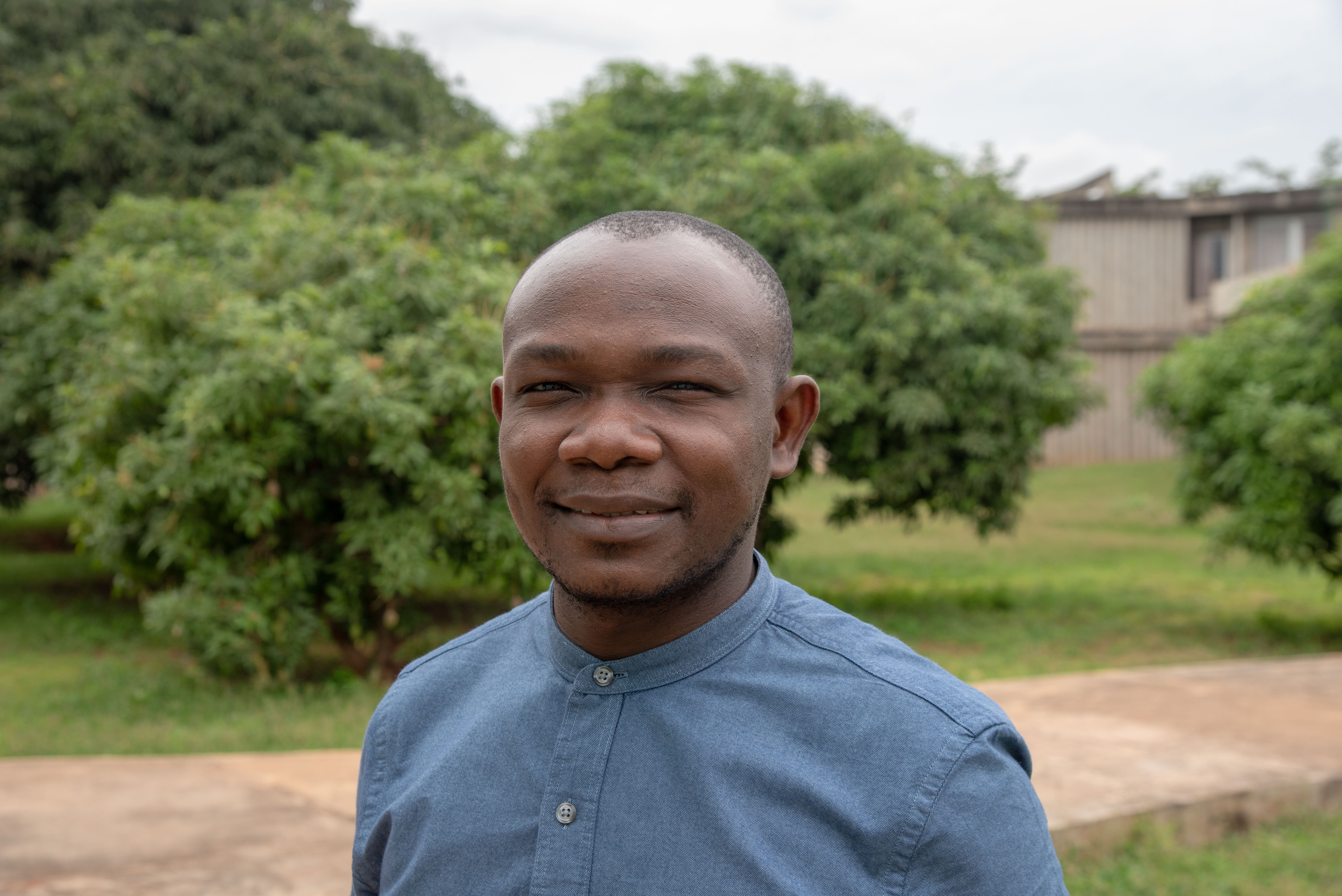
“Bringing speech to someone, for me, is bringing them life”, said Edouardo. A passion for speech and language led him to a career in speech therapy. He says working with children with clefts was a spontaneous decision but well worth it.
His results are astounding.
Most patients and families come into speech therapy without knowing what it is or how it will help. After the very first session, or even during it, parents’ eyes light up at the sound of their child saying things they never thought possible. As time goes on, patients learn more sounds and develop their speech even further. The most gratifying part for Edouardo is hearing the child’s family and friends gush over how their loved one is becoming easier to understand and more talkative.
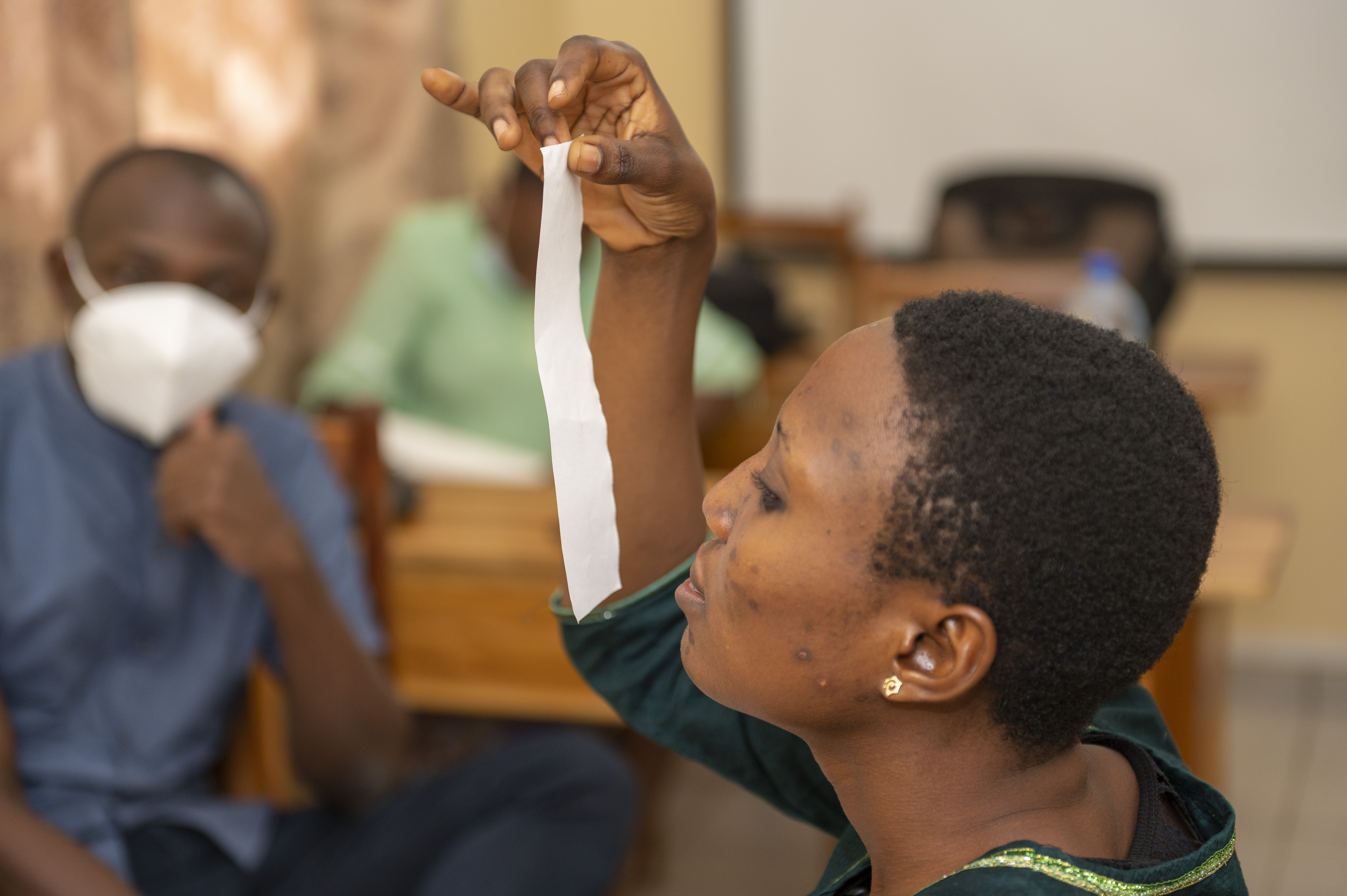
Edouardo didn’t always specialise in cleft speech therapy. Before partnering with Smile Train, he had only worked with three children with clefts in seven years at his practice at Centre Medico-Social Luc Au Jourdain in Benin. But since becoming a Smile Train partner, patients who once couldn’t access speech therapy or didn’t know it was an option have been coming from up and down the country for his services.

And Edouardo isn’t just helping patients. While many speech professionals learnt how to work with children with clefts before Smile Train, most received no practical training. Specialised exercises and evaluation techniques for children with clefts were only talked about, never practised; when they had an actual patient with a cleft, these professionals didn’t know how to apply what they had been taught. So Edouardo left Benin to provide in-depth, in-person speech therapy training to peers across West Africa. Faysal Hamzah, a speech therapist at Smile Train partner Centre Hospitalier Universitaire Campus in Togo, is one of his star students.
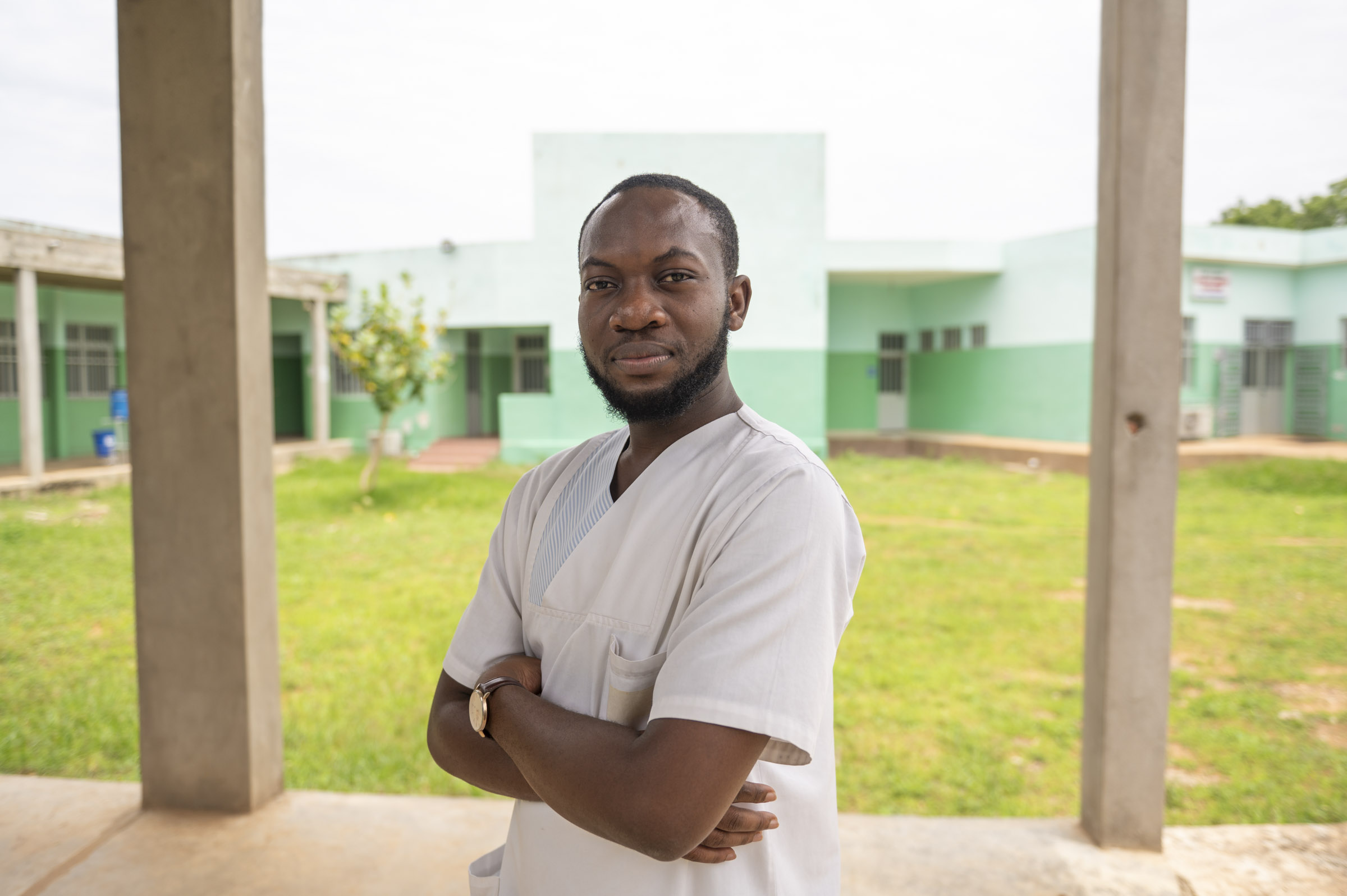
Faysal was first exposed to speech therapy at a young age. He grew up with a stutter, and it inspired him to help others with speech disorders. Like Edouardo, Faysal rarely worked with children with clefts before encountering Smile Train. Now, with Edouardo’s guidance, he’s even more confident in his ability to help these children speak with confidence and dignity.
Faysal sees himself in many of his patients. Though their issues are different, he, too, struggled to be understood in ways that hurt his confidence. When patients come to his office unmotivated, he tells them his story.
“I have experienced what they are experiencing today, and if I was able to overcome it, it means they can do it too”.
Without even knowing it, these patients have just taken the first step to overcoming their speech challenges: believing they can.
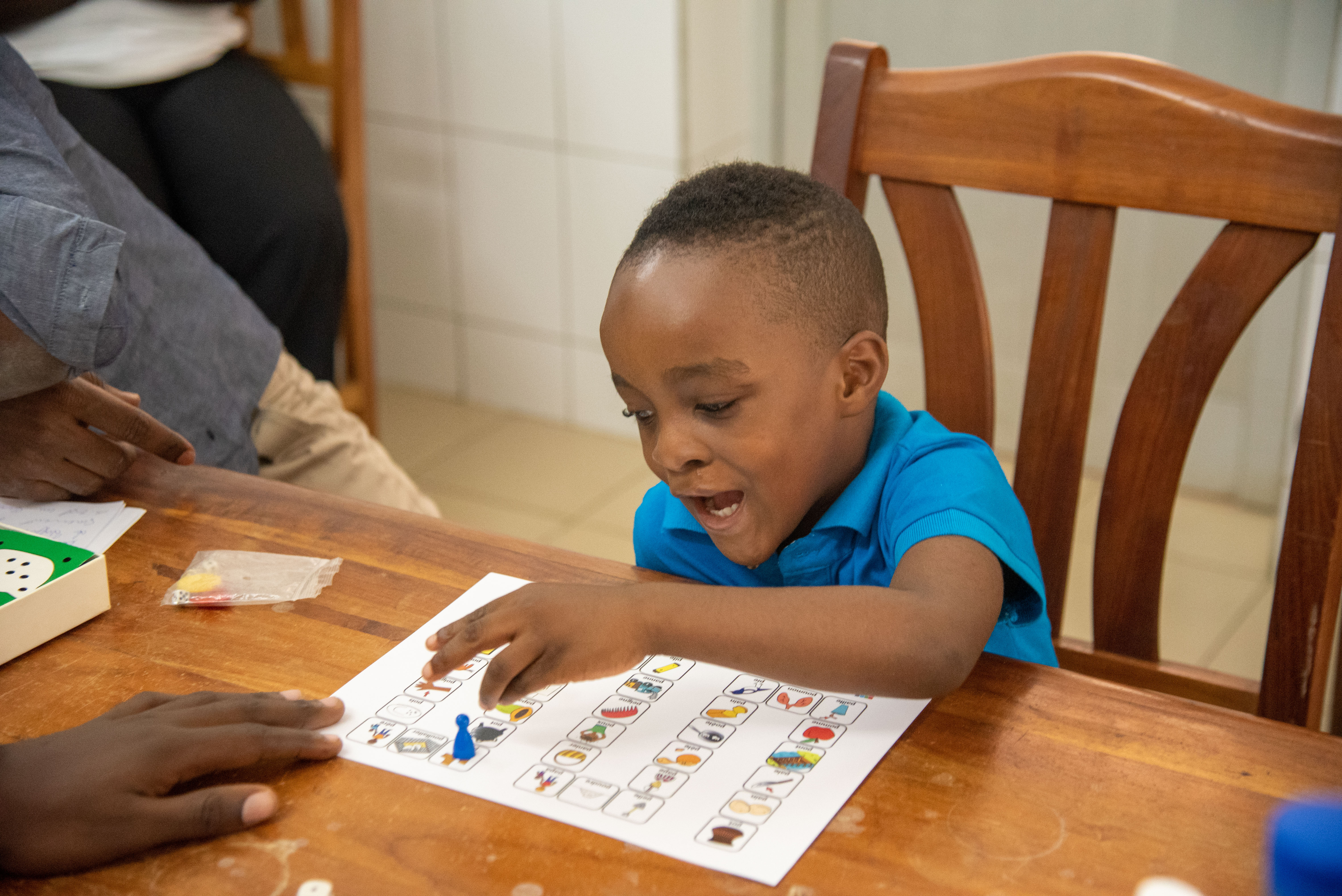
For young patients, speech therapy often happens through games. “Everything must be done in a playful context so that the child finds pleasure in what we are doing”, Faysal said. Games aren’t as common when working with adults, but no one is too old for humour, which, in his professional opinion, is always the best method for helping a patient open up and smile.
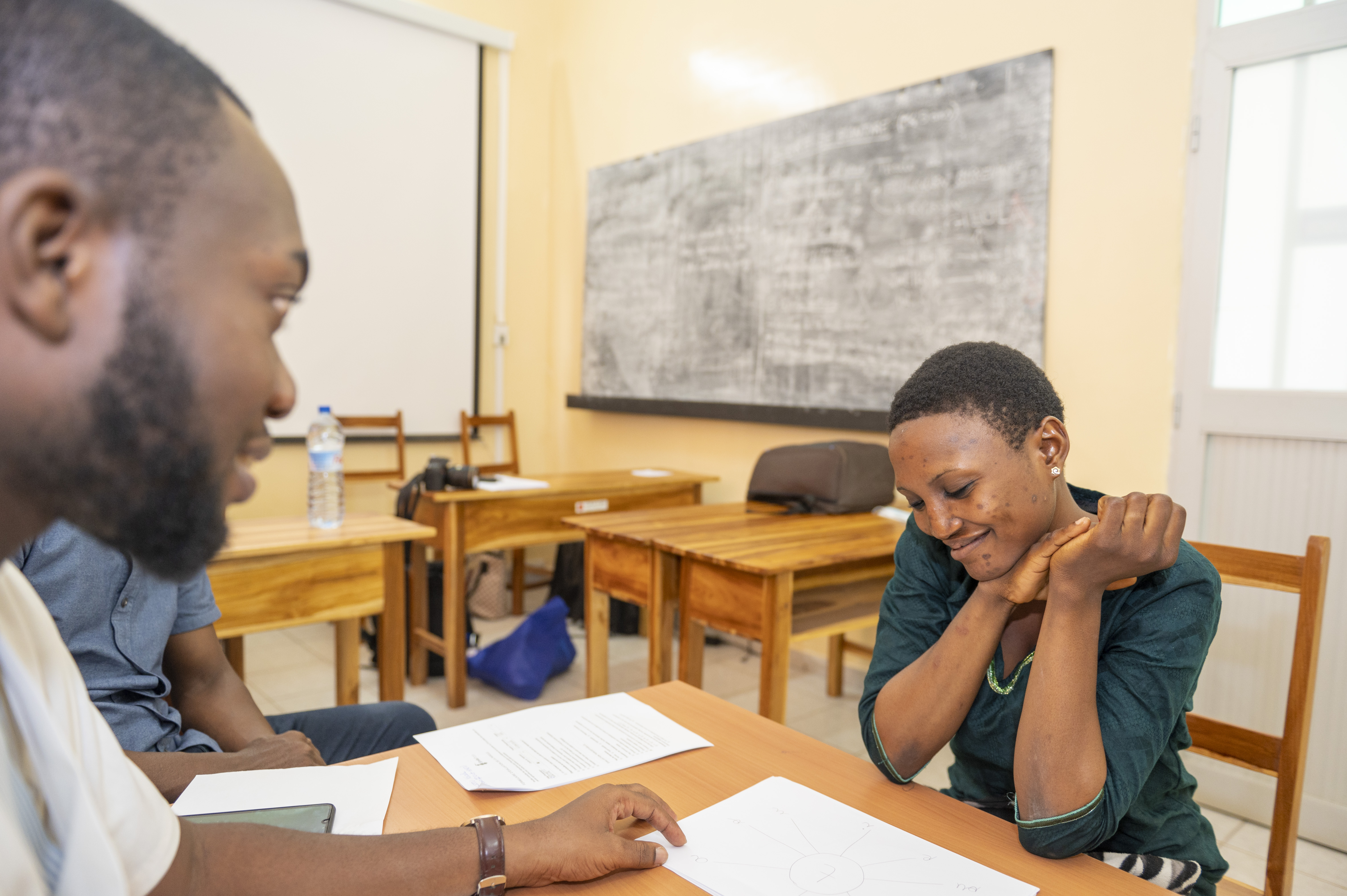
When patients finally graduate from their speech therapy, they feel they have been given a second chance, ready to take on the world. With the help of caring specialists like Edouardo and Faysal, people with clefts across West Africa are losing their fear of being misunderstood.
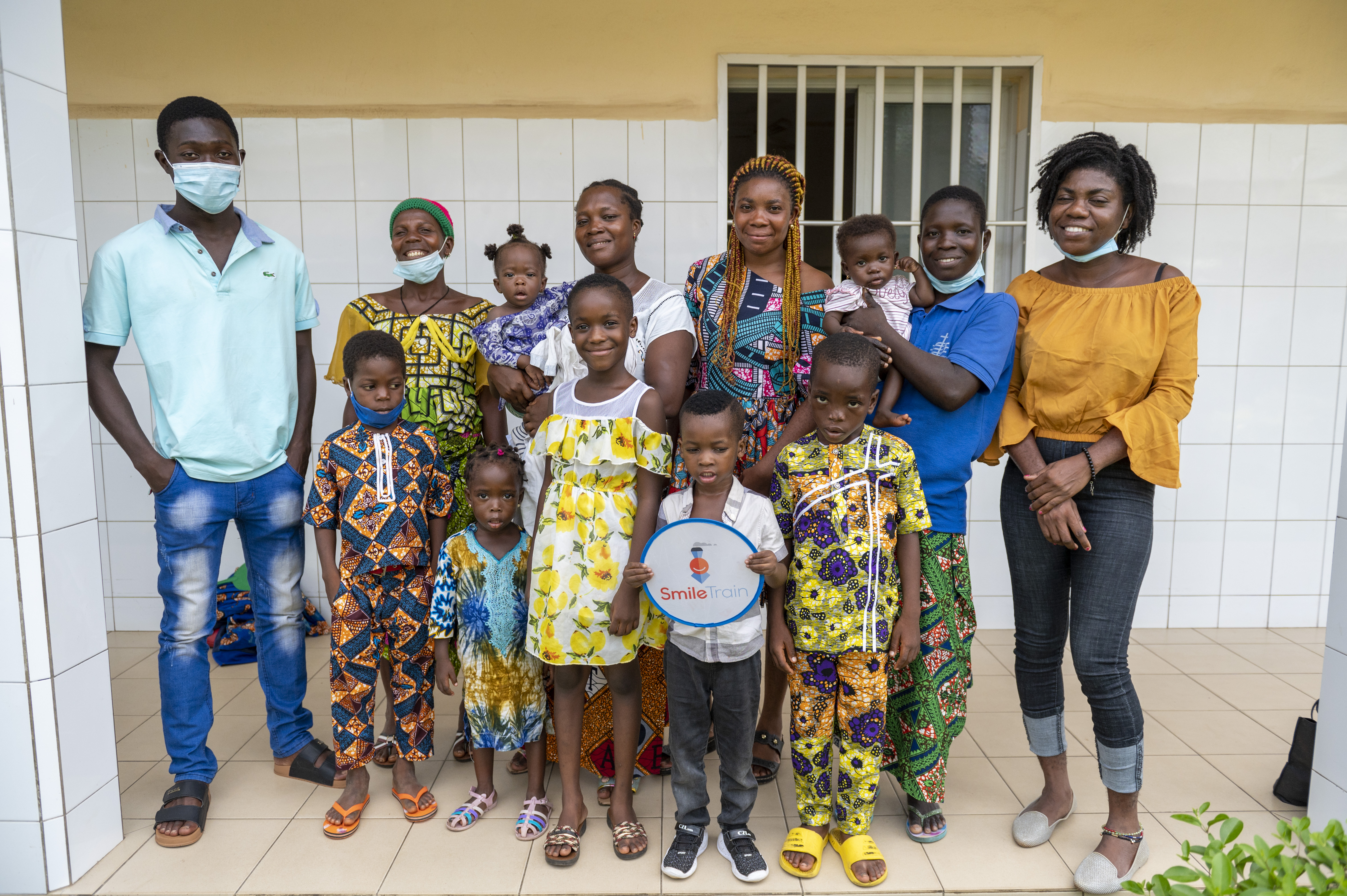
“When you’re able to discharge a patient, it feels like magic”, said Edouardo.
But work like this is even better than magic – it’s real, and it makes children’s dreams come true.
Help Smile Train change lives all around the world.

